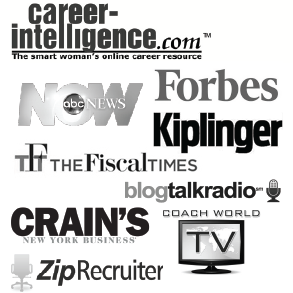
Jul 7, 2014 | critical thinking, entreprenuers, leadership
I posted this on a previous July 4th and I’m happy to report that it remains relevant today. Sure, circumstances change and context shifts but the essence of the conversation — the central truths — still pertain. As far as the shifts go, I’m very encouraged that the cross-pollination I advocate at the end of the original post has started to happen, with established businesses — and even corporations — coming to value a more entrepreneurial, innovative and questioning mindset. Similarly, entrepreneurship is attracting many former corporate types who are tired of toiling in someone else’s mine but who can bring some structure and a bit of process to the often unruly state of early entrepreneurship. Our culture highly values independence and self-reliance and it’s taken the economic reverses to remind people that companies are no longer the secure, paternalistic guarantees of yesteryear. The caution now is that nothing is a magic bullet so it’s critical that those who abandon one for the other must understand the realities of both. Neither is a haven, both require hard work and in the end, it’s about the choices we make … and the freedom we have to make them. That’s independence! Independent Day Everywhere you turned this past week, there was some article or other discussing the significance of and reverence for July 4. And rightly so, as it’s been said that the collaborative work product of our Founding Fathers formed the basis of a most compelling political system. Plus, it’s an inclusive celebration – definitely not a contrived Hallmark event — shared by all Americans. So, we again celebrated our...

Jun 6, 2014 | coaching, confidence, critical thinking, gender roles in business, leadership, women
Lots of recent discussion about what I’ve long referred to as the confidence conundrum — how much is enough, how much is too much, how do we get it, why does he/she have it and I don’t— particularly as it pertains to women in leadership. While this is certainly not a new topic, two national journalists have written a book hoping to “crack” the “confidence code”…once and for all. See an overview here: Journalists Kay and Shipman urge women to close the confidence gap. Not that simple. Despite ongoing efforts to capture it, achieving a state of balanced confidence continues to elude even the smartest and most successful. Which is why hot and cold running trainers and coaches have created a self-perpetuating industry of quick fix offerings that a) capitalize on fear and b) never get at the more fundamental issues, the true drivers of authentic and sustainable confidence. In fact, their approach is merely palliative and therefore short-lived: they drill women on using bolder verbiage, on deploying more assertive body language, on acting ‘as if;’ indeed, all are legitimate interventions and confidence boosters** but are also wholly insufficient. The problem and why it persists, I submit, is that we’ve been thinking and going about this all wrong. In 2013, I was asked to address the East Tennessee Women’s Leadership Summit on this very topic and had the distinct privilege of shaking up the status quo with an original and innovative paradigm: basically, confidence isn’t a commodity to be bought, sold, borrowed, loaned or lusted after and there simply is no code to break. Instead, it’s a constellation of...

May 14, 2014 | coaching, critical thinking, networking, Uncategorized
I’m often asked to train leaders, board members, and teams on the topic of personal branding and networking, subjects I’m happy to simplify for my clients. However, in order to make an impact in this particular arena of professional development, I must first reveal a sometimes unwelcome truth: The art of creating a personal brand and building sphere of influence offers no legitimate short cuts. Even considering the speed at which business moves today, incremental and deliberate is still the way to go when developing a compelling brand and a powerful network. A strong personal brand isn’t something academic or hypothetical you fabricate in a closed room with your resume, a notebook and personal coach. It’s built over time, from the inside-out, and is the culmination of how you choose to conduct yourself in the boardroom, in client meetings, and when representing the firm at your industry meetings. And it’s the strong, authentic personal brand lived consistently that is the key to building a meaningful and influential network. Of course, there will always be those who promote the quick, far and wide method of building your network, amassing names of “contacts” and reducing your personal brand to a 30 second elevator pitch. But this does little to foster deep connections and a curated network, the stuff of influence. And, because influence is the currency of business, I’ll continue to bypass the shortcut in favor of the longer but more scenic...

Apr 10, 2014 | coaching, critical thinking, leadership
Mentoring — while a popular buzz word in the halls of corporate America today — is actually a very old concept, referring to a teaching technique previously reserved for the few and the special. However, in response to the fast pace, intense competition and complexities of business, mentors and proteges alike, have significantly diluted the mentoring process into something that lacks the power, impact and effect it once implied. To reinvigorate your own mentoring program, and plan for its possibilities and limits, it’s critical that you approach the process through a different lens. Let’s start with a basic definition. Building an impactful mentoring program or being an effective mentor is a delicate dance, more complex than the standard, yet unofficial definition of the term, making mentorship synonymous with brain-dumping information, fixing people, or making connections. While leaders are often fine with the teaching / advising function of mentoring, the true impact is made when the mentor adopts the Indo-European derivation of the word, meaning “to think.” The best, most enduring gift Mentors can give their proteges is to get them to think. Effective mentors teach, yes, but more importantly, they question and challenge their protoges to deploy the knowledge they’ve gained, see patterns, connect the dots, make inferences and solve problems. If you’re reading this and your own mentoring relationship or mentorship program appears to lack the power and results you initially imagined, remember that the best, most sustainable, and most applicable learning is experiential. Encourage your leaders in mentoring roles to: Ask more questions; – Avoid being overly prescriptive – Expect the protoge’s interest, commitment and energy to match...
Apr 7, 2014 | Uncategorized
Congratulations to all the women— in 40 different markets —participating today in Mentoring Monday sponsored by the Business Journals. As a professional development expert who teaches and has consulted on mentoring strategies and programs, I will attest that mentoring relationships can shorten a learning curve, accelerate growth and provide the know-how necessary to successfully navigate the vagaries and complexities of our new global workplace. While there’s no doubt this initiative is fantastic, its real value today — given the one-off, quick fix mentoring minutes — is in the connections it can foster between and among the women attending. Ideally, there’s an arc to a mentoring relationship that starts with solidifying trust and rapport and then continues to build over time, increasingly addressing career issues of strategy, logistics and performance. Implicit in and essential to this arrangement are high levels of commitment (mentor and protege have to be equally committed) and the acknowledgment of accountability: mentoring is truly a two-way street, with the protege assuming at least as much responsibility as the mentor. So, with continuity, commitment and accountability, a well-managed mentoring relationship challenges thinking, inspires action and allows for course correction in real time. In the not too distant past, there’s been pushback in the research suggesting that women don’t benefit as much as men do from mentoring. Perhaps this event and other wide scale ones like it can bring new traction and breathe a vital spark into an age-old...





 Dani Ticktin Koplik —
Leadership consultant, executive coach, change agent and passionate professional development expert and speaker. You can learn more about Dani and her clients by visiting dtkBio page.
Dani Ticktin Koplik —
Leadership consultant, executive coach, change agent and passionate professional development expert and speaker. You can learn more about Dani and her clients by visiting dtkBio page. 